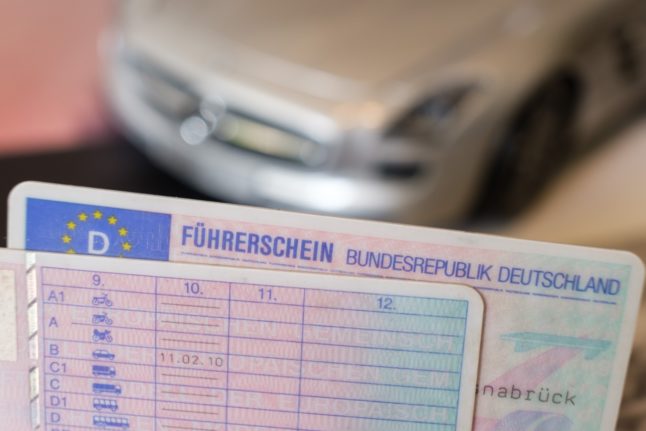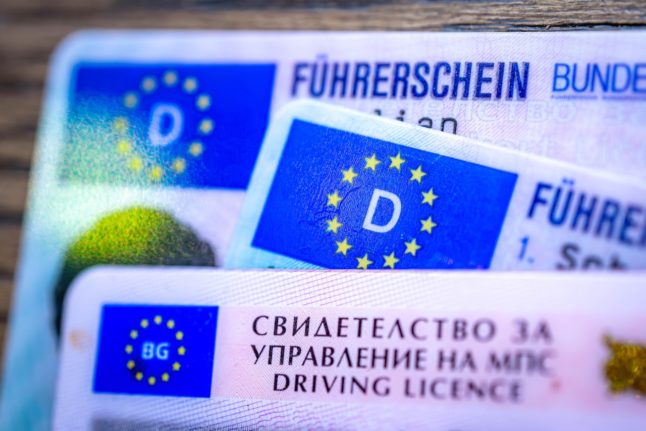More than 2,700 driving licence candidates tried to cheat on the theory test in the first nine months of this year and were caught.
That was 38 percent more than in the same period last year and more than ever before, TÜV reported.
“We assume that the number of unreported cases is much higher,” said Richard Goebelt, head of TÜV’s vehicle and mobility division.
READ ALSO: How to get a German driver’s licence as a third-country national
According to the report, about one-third of the attempted cheats were proxy tests, or when someone else pretends to be the actual examinee in order to take the test for them.
In another third of the attempts, unauthorised technical aids such as mobile phones, headphones or cameras were used. The last third was made up of classic cheat sheets.
Nevertheless, cheating attempts only occurred in a very small proportion of the theory examinations taken, according to TÜV. In the first nine months of this year, 1.52 million exams were taken, or about nine percent more than in the same period last year.
TÜV also reported a “serious problem” in the increasing risk of violence among exam takers. In dozens of cases, the examiners were verbally attacked by the person they caught cheating, and in 20 cases physical violence was threatened.
In spring 2022, the German government introduced tougher sanctions for cheating on driving licence tests. Since then, attempted cheaters face a driving ban of up to nine months. But according to TÜV, not all driving licence authorities have been enforcing the measure.
“This is by no means common practice everywhere,” said Goebelt.
High failure rate
At 42 percent, almost every second learner driver fails the theory test. According to the TÜV, the failure rate for passenger car class B is as high as 45 percent.
“In the view of the testing organisations, a central cause is the increasingly complex and dense road traffic with more and more vehicles and the resulting consequences,” it said.
“If we want to reverse the trend, we need better road safety education in schools and at home and further strengthening of driving training.”
The failure rate for practical driving tests was around 30 percent and 37 percent for Class B respectively.
A total of 1.32 million practical tests were taken between January and September 2023, roughly the same number as in the same period last year.




 Please whitelist us to continue reading.
Please whitelist us to continue reading.
Member comments